Heads of State of the Atarashī Jōtai: Difference between revisions
No edit summary |
|||
| Line 23: | Line 23: | ||
|[[Paramount_Leaders_of_Neo-Korea|Paramount Leader]] | |[[Paramount_Leaders_of_Neo-Korea|Paramount Leader]] | ||
|{{wp|Head_of_government|Head of Government}} <br> {{wp|Head_of_state|Head of State}} </br> | |{{wp|Head_of_government|Head of Government}} <br> {{wp|Head_of_state|Head of State}} </br> | ||
|September 13th, | |September 13th, 1961 - <br>January 18th, 1986 </br> <br> Term of 25 Years </br> | ||
|N/A | |N/A | ||
|- | |- | ||
Revision as of 03:16, 16 November 2024
The following is a list of leaders of the Atarashī Jōtai, also known as Neo-Korea since its foundation in 1961.
History
As enshrined in the initial laws passed after the end of the Kāichrén Civil War, the leader of the National Development Party (a role historically interchangeable with that of the Paramount Leader) is the expresser of state power over the affairs of both the government and state. As Neo-Korea does not have a formal constitution and did not (before Hikaru Sakuma was placed into a coma) have an defined process for who would take charge in the event of the incapacitation of a Paramount Leader, it was determined-by-CGC consensus that said role would be taken by a temporarily-elected head. While not officially considered as such by Neo-Korea, for the purposes of this list the 6 CGC heads who took charge during the incapacitation of Hikaru Sakuma will be counted as official Heads of State.
The role of Paramount Leader (technically rendered as Chūō Kanrisha, or Central Administrator) was established to create a distinction between the leading official of Neo-Korea and the Kantoku role taken by both Ogata Katsu and Hamamoto Jaeon historically. Through rendering himself as an Administrator instead of a Director, Hikaru attempted to establish a technical delineation of power between the Paramount and the CGC - the latter of whom were to act as an official administrative body and offeror of laws. This relationship would lead to the handing of the role to Beom Dae, with those involved in such hoping to mandate the CGC as the primary partner in the relationship.
Counting members of the CGC, there have been 8 heads of state throughout the 73-year period of existence experienced by Neo-Korea.
Heads of State of Neo-Korea (1951-Present)
| General Information | Title | Term of office | Faction | |||
|---|---|---|---|---|---|---|
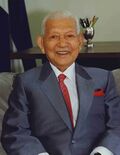
|
Hikaru Sakuma (born 1907, age 44 upon beginning of term) |
Paramount Leader | Head of Government Head of State |
September 13th, 1961 - January 18th, 1986 Term of 25 Years |
N/A | |
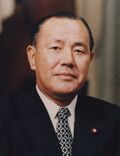
|
Kaba Ryota (born 1929, aged 57 upon beginning of term) |
Head of the CGC | Head of Government Head of State |
January 18th, 1986 - January 27th Term of 9 Days |
Keieikō | |
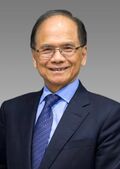
|
Anzai Kurou (born 1934, aged 43 upon beginning of term) |
Head of the CGC | Head of Government Head of State |
January 30th, 1986 - August 12th, 1988 Term of 2 Years |
Keieikō | |

|
Goya Tadashi (born 1927, aged 61 upon beginning of term) |
Head of the CGC | Head of Government Head of State |
August 14th, 1988 - April 9th, 1989 Term of 4 Months |
Anzen | |
| N/A | Sera Michio (born 1941, aged 48 upon beginning of term) |
Head of the CGC | Head of Government Head of State |
April 12th, 1989 - April 22nd, 1989 Term of 10 Days |
Anzen | |
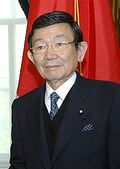
|
Okuma Taro (born 1919, aged 70 upon beginning of term) |
Head of the CGC | Head of Government Head of State |
April 24th, 1989 - May 23rd, 1993 Term of 4 Years |
Kōshin | |
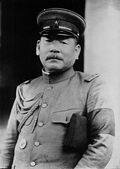
|
Muraoka Shig (born 1935, aged 58 upon beginning of term) |
Head of the CGC | Head of Government Head of State |
May 26th, 1993 - August 8th, 1995 Term of 2 Years |
Keieikō | |
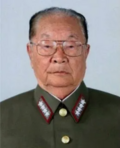
|
Beom Dae (born 1938, age 57 upon beginning of term) |
Paramount Leader | Head of Government Head of State |
August 12th, 1995 - Present Term of 39 Years |
N/A | |